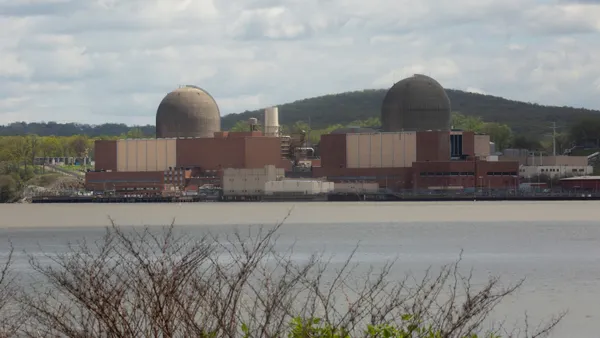Dive Brief:
-
A North Carolina Judge on Friday partially dismissed Duke Energy's appeal of the state's finding that the utility should completely excavate all its coal ash.
-
The North Carolina Department of Environmental Quality (DEQ) in April ordered Duke to completely excavate all its coal ash ponds, finding that was "the only way to protect public health and the environment." Duke filed an appeal on the decision in May.
-
Duke said it is "disappointed" by the ruling, but intends to proceed with the appeal.
Dive Insight:
The subject of coal ash in North Carolina has been tense since the 2014 Dan River spill released 39,000 tons of coal ash from one of Duke's facilities.
Since then, Duke has committed to fully excavating eight of the utility's 14 coal ash sites, but the fate of the remaining six plants and their 11 ponds was unknown until the DEQ's May order.
Duke, in its appeal, questioned the methodology of the department's studies on the ponds, saying the decision was "not based in science and engineering."
Administrative Law Judge Selina Malherbe dismissed the utility's claims that the DEQ was incorrect in ordering the full excavation, as well as the timing of the order and the methodology of its decision.
"The ALJ affirmed that DEQ had proper legal authority to elect the closure option for each coal ash impoundment," the DEQ said in a statement. Though the appeal is not entirely dismissed, the judge's decision "will limit the scope of the appeal as it moves forward," according to the department.
Duke is "working to determine" which claims to continue proceeding with, spokesperson for Duke Energy Bill Norton told Utility Dive in an email. "Beyond the questions addressed by today's ruling, we will continue to argue that DEQ's decision itself was not correct, and that DEQ clearly did not consider cost and should have."
The six sites the case addresses are near several waterways, including two on the Catawba River near Charlotte, North Carolina, one on the Broad River near South Carolina and the final three are near the Dan and Roanoke River Basins.
"Today's dismissal puts to rest the notion that DEQ was premature in selecting a remedy for Duke's coal ash pollution – an issue that has been studied for years and received multiple rounds of public comment – and allows the case to focus instead on DEQ's decision to require a full cleanup," D.J. Gerken, senior attorney at the Southern Environmental Law Center said in a statement.
The case will proceed in the Office of Administrative hearings, according to Norton.














